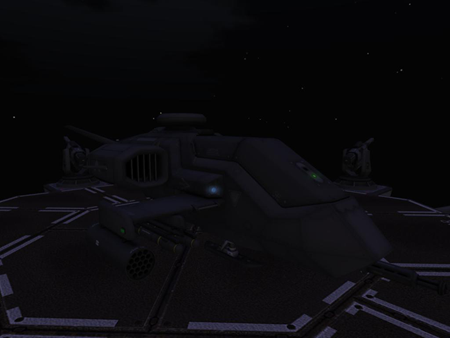 Child of Virtue
Child of Virtue
by Hristo Goshev
With the roar of a thousand thunders crashing at once, the Haven’s plasma cannons fire another deadly volley against their targets. The floor shifts beneath my feet, and some torn wire in the ceiling showers me with scorching sparks, but that can’t stop my rush through the destroyer’s corridors. Once more, I urge myself not to think about what’s going on out there, in the dead, cold nebula. Just as our pilots are fighting for the lives of everyone onboard, I must do the same with the tools I’ve been given.
“Dr. Amagiri, report to the infirmary!” the ship’s loudspeakers echo again, as if I don’t know that’s the only place where I can be of any use. Old Dr. Han must be overwhelmed by the influx of casualties from the attack. His hands are not as steady as they once were, and our ancient surgical bots can’t be entrusted with anything more involved than suturing flesh wounds. I must get there as soon as I can.
We pulled the short straw this time. This was supposed to be just another routine jump in the endless gas clouds around N362—the kind we perform once every couple of months to remain concealed from the Destroyers. Instead, we stumbled right on top of one of their fighter patrols, an event so improbable that it almost looks like some malicious cosmic joke. Judging by the increasingly shorter breaks between hits, they must have called in several bomber wings.
Maybe even a cruiser.
My girl must also have launched in her Valkyrie. Knowing her, she was probably the first to enter the fray. A few days ago she made me promise that I’d let her name our daughter if she reached a hundred enemy kills before giving birth. Naturally, my pleas that it’s pure madness to subject herself to such perilous accelerations in the thirty-third week of pregnancy fell on deaf ears. Each time I started arguing the case, she would retort with that playful smile of hers that this would help the little one become an ace pilot like her mom one day. That’s just how Haru is—always dancing along the line between bravery and recklessness. Maybe that’s why I love her so much.
The next detonation catches me off guard and sends me flying into the nearest wall. My left shoulder gives a sharp pop on contact with the cold metal. As the pulsing pain slowly ebbs away, I stand up and rally myself. Not dislocated, then. We still have atmosphere, which means that the armor held. Gods bless Terran engineering—I never would have expected an Orion-class destroyer to be able to absorb as much damage as the Haven did over the last few years and still keep flying.
Under normal circumstances, I shouldn’t even set foot in Engineering—it’s for authorized personnel only—but through it lies the shortest route between the cabins and sickbay. Breathing ever more labored, I vault over bewildered service bots and squeeze through narrow passageways packed with equipment whose purpose has long since been forgotten. Every now and then a technician dodges clear of my path, their expressions a mixture of anxiety and religious awe. It no longer confounds me as it once did—in battle we medics become more vital than almost anyone else on board.
When I reach the infirmary, it reminds me of a Bosch painting. People with various degrees of burns, lacerations, and open fractures occupy every available surface—there are more than I can count. They produce a choir of groans, prayers, and curses that could drive the unprepared mad within minutes. But Dr. Byung-Yon Han and I have been through similar crises before. While the bots attend to the less critical patients, the old man is already elbow-deep in someone’s intestines.
“Shinji, take table four!” he shouts without lifting his gaze from the poor guy in front of him. “I think a pericardiocentesis may be in order. And don’t let Abe do it, for pity’s sake! Remember what happened last time?”
“Got it, sensei,” I acknowledge, while hurriedly wrapping myself up in scrubs. On the operating table in question lies Andrei of the deck crew—a hulking, good-natured young man I sometimes drink with at the bar. His unnaturally swollen abdomen tells me that he has an internal hemorrhage, and if I don’t open him up soon, he’s done for. A sonogram confirms my suspicions: several shattered ribs have punctured his lung, one fragment lodged dangerously close to the pericardial sac. Thankfully, he is unconscious and already intubated.
“Relax, buddy. It only looks bad, but we’ll get you fixed up in no time.” I mutter more to myself than to him, before my scalpel sinks into his chest. Then TMB-A8E or Abe, one of our ever-enthusiastic robot assistants, pulls the flesh apart and cuts through the sternum with its saw-like manipulator. The intrusive smell of scorched bone hits my nostrils, and I start draining the cardiac tamponade to alleviate the blockage of blood flow. I feel a tinge of satisfaction as I notice how precise my incisions are today, even without the aid of stimulants.
I’m reaching for a sharp bone fragment with the forceps when the ship quakes again and all the lights go out until backup power kicks in. Apparently our fighters and flak batteries just missed another bomb.
Hang on, Haru-chan, I pray while my fingers automatically perform their bloody task. You do your job, I’ll do mine, and everything will be fine.
And so with grim persistence I continue to set bones, cut, aspirate, coagulate, and sew. As always during an intricate surgery, time loses its meaning, and I can only see a singular goal that fuels my existence. Then, suddenly, it’s over. Without half of his left lung, Andrei will have a hard time dashing across the decks, and he’ll likely lose his arm-wrestling title, but he’s going to live.
“How’s it going out there, sensei?” I ask my mentor, who’s standing closer to the communications console. “Have we won this yet?”
“Our guys are still holding on. The CIC says that it will be thirteen minutes before we can get out of here.” He won’t look at me, but his hoarse growl grows a tad softer.
“I am sure that Haruka is all right. She is our best pilot, remember? An ace of aces—that is what Lyosha calls her. He may be an old goat, but he knows his combat flyers. Now focus and give Andy some antibiotics before he develops sepsis.”
Those thirteen minutes seem like thirteen centuries.
That’s the thing about subspace engines—you can’t keep pushing them incessantly. If you are dumb enough to initiate a jump before the drive’s magnetic confinement has regained its integrity, your ship will simply implode into a singularity. At least that’s what I remember from the basic n-dimensional physics classes Haru and I attended back on Earth. So distant now, a lifetime ago…
#
We’re all that’s left of the human race.
Fifty-two thousand souls is a number that far exceeds the nominal capacity of an Orion-class destroyer, but then again, the Haven is no longer a frontline battleship—not after we left the Solar system behind, ablaze in a thermonuclear hurricane along with its twenty billion inhabitants. No one else made it out of that fiery hell.
I only remember fragmented bits of the evacuation. The chaos-ridden streets of Tokyo. The smell of charred synthetics from the burning cars jamming the roads. The deafening howl of engines as fighters launched from Yokota Air Base flew overhead on their way to orbit. The people’s screams—sounds I never would have imagined a human could produce. And Haru’s small hand gripping mine with the desperation of a drowning person holding onto a plank midocean.
Even though humanity had been losing the war from its onset, no one believed that it would come to this. After all, the Galactic Terran Union was our impenetrable shield. Our military was supposed to be invincible. The Destroyers either didn’t know that or simply didn’t care, for they trampled our defenses within mere weeks, laying waste to systems that took centuries to colonize. Their path to Sol was paved with the broken bodies of millions who would never know why they had to be sacrificed.
Which vengeful god laid claim to our souls? What universal law did we break to deserve this apocalypse? It wasn’t until years later that I started asking myself these questions. Back then we were just two kids, clueless and terrified, torn from our relatives and friends only to be crammed into an overloaded shuttle together with two hundred strangers. Who would have guessed that something as random and trivial as missing the train to school could save one’s life?
My insides still recall the crushing acceleration as our small ship shot from Earth’s orbit through a swarm of alien vessels that the remnants of First Fleet were desperately trying to repel. The view I saw through the porthole remains burnt in my mind: pylons of crimson energy cutting through the atmosphere, entire continents engulfed in firestorms, and rivers of magma bursting out of the Earth’s bosom to incinerate everything humanity had built. This picture often haunts my dreams even now, two decades later, as if to remind me that our salvation is nothing but a brief respite, that there’s no safe harbor for us in the entire universe. Sooner or later, the Destroyers will find us.
They always do.
The rest of our escape remains a murky haze. Our panicked race against the enemy to the lunar shipyards where the Union’s last interstellar destroyer, the Paladin, awaited. Then pushing its subspace drive to the limit to jump through Delta Serpentis, Ross 128, and Laramis all the way to the remote, uninhabited system of N362.
You’ve got to admire Admiral Voronin’s foresight—this is the only relatively sheltered place in the whole known galaxy. There’s nothing here but a lonely pulsar and its surrounding nebula, the remnant of an ancient supernova that absorbs radar waves and prevents visual contact. In it we’re as blind and deaf as the Destroyers, but this works in our favor. There’s nothing out there for us anyway.
We now inhabit what can only be called an ark—a dismal ghost of our once proud Starfleet. Carrying a new name, it’s filled with the memories of a lost generation that will never see its home again. Thanks to the relentless efforts of our engineers, the destroyer’s spacious decks, storage rooms, and power circuits were reworked to support enough cryopods for all the evacuees we don’t have the resources to feed. Our small pig farm and makeshift hydroponic gardens can’t sustain more than a thousand people at a given time, besides who would voluntarily subject themselves to dwelling in this desolate inferno? Even Dante, in all his genius, never could have imagined this.
Haru and I don’t have a say in this matter though. We stay constantly on call. I’m Dr. Han’s only qualified apprentice. And at twenty-two, after the last of our original group of pilots died in combat, the admiral promoted her to our fighter squadron’s leader. The choice was well-founded—she was already more skillful than any of them—but no one bothered to peer behind the mask of her seeming fearlessness. Not even me.
Sometimes in our darkest days I catch myself thinking that it would have been better if it all had ended for us back then, instead of carrying on with this grotesque parody of life, this base survival devoid of any hope for the future. Even if we could hide forever, I can’t stop wondering what will become of our children and their children in turn. Will they know who they are and where they come from? Will they remember that they are descendants of a great civilization from a distant blue planet, of people who reached for the stars without fear and conquered the unknown… until the sleeping dragon awoke in the depths of subspace and rose to swallow them?
How many artists do we have left on the Haven? How many writers? How many teachers? It can’t be more than a dozen combined. And even if there were more, would it matter? Survival always takes precedence over art and enlightenment. You can’t compose sonnets while hungry lions close in on you. But if you’ve ever read a sonnet, if you’ve marveled at a magnificent painting or lost yourself in the magic of a melody, the prospect of never being able to do so again becomes unbearable. Out of all the punishments that have been forced upon us, this one is the harshest.
But wretched though it was, this existence failed to drown me in despair. Because I had her. Just one look in Haru’s eyes was always enough to dispel all my fears and hesitations. Her fiery spirit warmed me in the cold between the stars. Her caresses reassured me at night, warding off the specters of old heartache. Her tender voice promised that we’d find our way to a new dawn—somewhere beyond the nightmares and memories of past glory.
And I placed my faith in her.
I’ll never really know what she saw in me. Even our impromptu wedding, which the admiral conducted in the Haven’s main wardroom, still seems unreal. Haru looked like some angel from outer space, a divine being no mortal deserves.
Yet she chose me.
Granted, it’s not like there were plenty of options. The destroyer did house more capable and dependable men than me, but none of them had the advantage of being her childhood friend. So I rely on her, hoping that someday I’ll be able to give back at least a fraction of the solace she has accorded me. I nurture the illusion that we’ll grow old together, surrounded by our children and grandchildren. It’s a beautiful dream, even if we both feel that we have no right to hope for anything more than to continue fighting until we sell our lives as dearly as possible to the mute cosmic deities.
#
The sharp wail of the alarm plucks me from reverie’s embrace and forces me back into reality. Our situation must have changed, and I can only hope it’s for the better.
“Our birds are in, Shinji!” Han yells, gazing at the comms terminal. “We have three wounded pilots; they are bringing them here! Prepare the—”
“All hands brace for a shock jump!” XO Nekhaev’s tense voice booms over the intercom.
Not a second later I’m overcome by the familiar sensation of displacement as the Haven slips into the untraceable recesses of subspace. We did it. We’re safe… for now.
I’m unpacking a new surgical kit when Tommy Brandt, the hangar crew’s chief, barges into sickbay. Several of his men follow, pushing stretchers. Tommy himself is out of breath and drenched in sweat, and when his stare meets mine, it’s dull like that of a death row inmate.
A moment later I comprehend, and a thousand icy needles pierce my soul. I find her on one of the stretchers. My wife lies motionless. The bandage wrapped around her chest is soaked with blood that falls onto the floor in large dark-red drops.
“I swear to you, Doc, we cut her out of there as fast as we could!” Tommy starts apologizing in a trembling voice, his eyes a puffy, teary mess. Sometimes even I forget how much everyone on board loves their stalwart guardian. “If you had seen the number these bastards did on her machine—”
“Out! Now!” I screech at him, the sounds coming out of my throat bearing little resemblance to human speech.
Without uttering another word, he signals the others, and they hightail it out of the infirmary, leaving me alone among the wounded and dying. Further into the hall, Han keeps fighting a losing battle for some sailor’s life, cursing quietly in Korean.
The world swims before my eyes, and my thundering pulse threatens to burst out of my neck. My rage isn’t directed at our techs or even at the architects of Haru’s unfortunate Valkyrie. It’s just a powerless burst against the bloodthirsty fate that showed me a brief vision of happiness, only to blow it out through my fingers like smoke. But I can’t give in now, because I know that this is the very moment my entire life has been culminating toward. Memorizing countless diagnoses, formulae, techniques, and drug interactions, my grueling training, the frustrating chain of trial and error—it was all to bring me here.
For if I can’t save her, who am I even?
Moving with feverish determination, I start cutting through her flight suit and the bandages, looking for the wound. Haru is still conscious, but she’s coughing up blood, and I can’t make out what she’s trying to tell me. Then I see the jagged aperture in her chest, just below the sternum. It’s easy to imagine how it must have happened: as she was shooting down a warhead launched at the Haven’s corroded armor, she got caught in its blast radius. One of the cockpit’s metal elements broke loose, and at the next high-g maneuver, it impaled her like a butterfly on a pin.
Haru would often give me lectures on how the Valkyrie was never designed for sturdiness but for maximum combat speed and maneuverability, which made it the ultimate interceptor. Now I wish she never set foot in the simulator module ten years ago. I wish the admiral never made us take aptitude and reflex tests. I wish we never had to board this blasted coffin of a ship in the first place.
I unlatch a small compartment in Abe’s torso, grab two vials from it, then inject them into my wife’s belly. These are two full doses of specialized nanomachines—our last reserves of the Earth’s technological marvels. They have a much higher chance of saving her than my shaking hands and distressed brain. Trying my best to breathe steadily, I start programming them through the bot’s console to isolate the injured tissue and to reconnect all severed blood vessels—a tall order, but we’re in all or nothing territory anyway.
Haru keeps calling my name, but I can’t afford to look at her face now. All of my attention is absorbed by the nanites’ telemetry on the holoscreen. They are tenaciously trying to suture the torn arteries and clear the intra-abdominal spillage, but I can tell that, little by little, they are losing the race against inevitability. The artificial blood in Abe’s tank is almost out, and I can’t stop her bleeding. I simply can’t.
At the end of the day, we’re only doctors, not gods. Sometimes there’s only so much even the best surgeon can do. If this were someone else, I would have given up already, but losing her is unthinkable.
Patient status: critical, states the impassive console in brightly glowing letters. Recommendation: immediate fetal extraction.
I can see for myself that the damage is too extensive to be repaired in time. Her liver is torn to pieces, her bowels have suffered multiple perforations, and all of her insides are floating in blood and bile.
I have to open her up. It’s a meager hope that I’ll succeed where our most advanced medical equipment couldn’t, but it’s all I’ve got left. I reach for my scalpel, only to realize that I’m unable to move my arm.
Haru’s hand clutches my wrist with unexpected force, just like it did on that fateful day twenty years ago. She has that same idiotic smile on her face, but instead of confidence, this time it only fills me with excruciating agony.
“Save her, senpai,” she pleads gently. “Whatever you have to do, save her.”
I don’t argue. I know I can’t save both her and our child. As if in a dream, I watch my fingers clench the scalpel. My hand approaches the base of her bulging belly. The blade cuts through the muscle fascia and the uterine wall.
Haru doesn’t even flinch as I do this. She’s already packed full of anesthetics, but somehow I’m certain that, even without pain inhibition, she wouldn’t have acted any differently, my damn space samurai.
I bring out of her womb a small, bloody chunk of flesh one could hardly recognize as our infant daughter. Abe takes her in its metallic, eight-fingered hands, allowing me to focus back on my wife. Her hand is turning cold, and she no longer struggles for breath, which horrifies me more than the crimson foam that covered her lips moments earlier.
When she speaks again, her voice is barely audible. “You’ll survive this, Shin-kun. You both will… Whatever you may think, I didn’t marry a weakling.”
I find just enough strength to shake my head repeatedly, like some bugged robot struggling with two sets of conflicting instructions. This isn’t really happening. Haru isn’t dying. Our daughter won’t grow up motherless. No. The instant I accept it, the universe will crumble on top of me.
“So protect her, senpai,” she continues. “Teach her to smile. Teach her to love. Teach her to live.”
“How shall we name her?” I manage to croak out, each sound making my throat burn as if I’m swallowing razorblades.
“Nori… ko” whispers Haru, and her fingers finally loosen their grip on mine. Her stare remains fixed on something hidden beyond the veil of our existence, on some unfathomable future only she can see.
Only now do I notice the tears trickling down my face—a stream of sorrow that won’t dry until I join her in some next life. For Haru never was the fearless goddess of war who I, the fool, believed her to be. No, she must have been just a scared and vulnerable girl who accepted that role to keep our spirits up. And I couldn’t even apologize to her for all the burdens she had to carry in my stead.
I couldn’t thank her for all the happiness she gave me.
Noriko’s soft cries pull me from my numbness. Her tiny hands reach out to me—her only lifeline in the sea of horror and grief she’s been born into. But in her innocent hazel eyes, I catch a glimpse of something more powerful than all the terrible weapons the Destroyers could ever unleash on us. A glimmer of hope—a faint ray sneaking through the cracks of my devastated soul to illuminate the eternal gloom.
Hope. For the admiral and the officers. For the pilots and the space marines. For the techs, the engineers, the cooks, and the gardeners. For the fallen, the living, and the unborn.
For me. For all of us.
Hristo Goshev is born and raised in the Bulgarian capital city of Sofia. He holds a bachelor degree in computer network technologies from New Bulgarian University, and works as a systems administrator to pay the bills. He does some music journalism on the side, and is obsessed with video games, anime, cosmology, and quantum physics. He hopes to live to see the day when true artificial intelligence and virtual reality are born.
“Darkness upon the Deep” is his debut story.
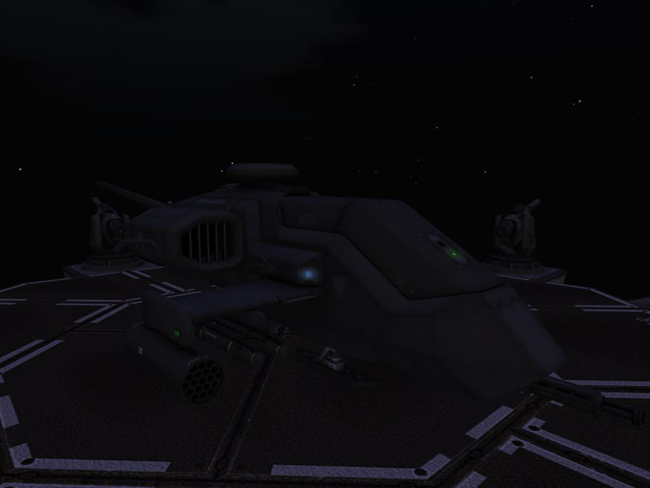

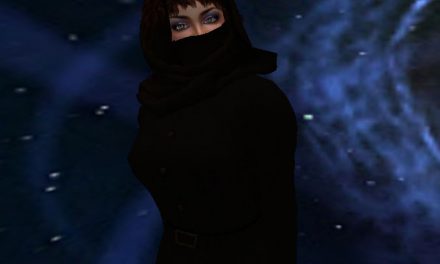
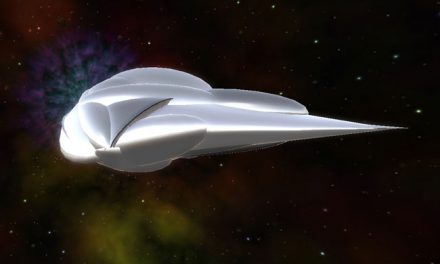
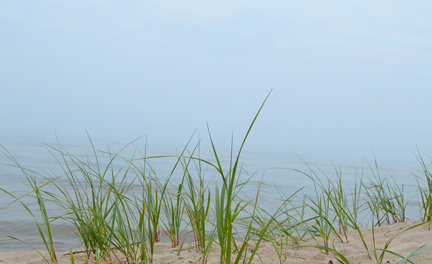
This is a masterfully written and moving story. The ending made me cry. I wish more modern-day science fiction was like this, about people’s real emotional struggles rather than shallow issues and ideologies.